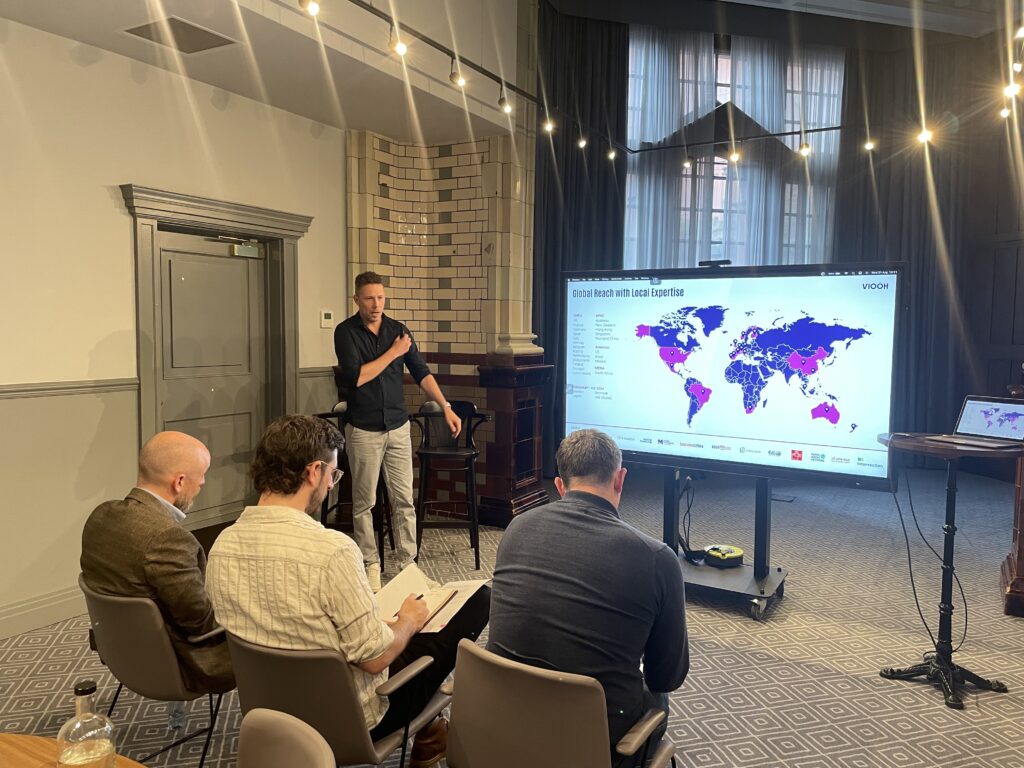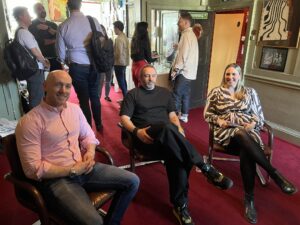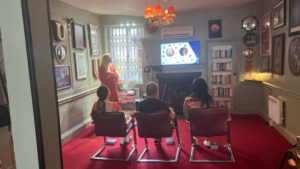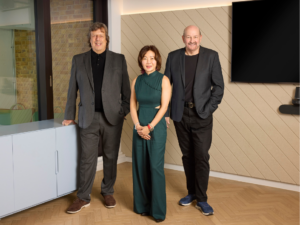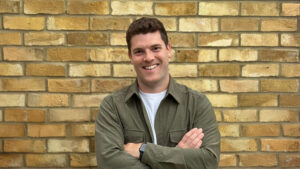Salford Sessions: No such thing as silly season when pitches are at play
Continuing the success of NewDigitalAge’s ‘Sessions’ season, this summer NDA’s ‘dragons’ relocated once more to our Manchester hub for its third Salford Session. Continuing NDA’s focus on the North’s booming media hub, Manchester welcomed a new cohort of contestants to put themselves to the pitching test.
Bursting out of the London bubble to promote UK-wide excellence in all things media, representatives from Adform, AudienceQ and VIOOH were put through their paces in front of three of medialand North’s leading lights – Notorious Communications, KINESSO UK&I and Havas Lynx Group. These three mediatech companies pitched on the essence of their offering, fielded questions and hoped to avoid shredding their nerves by teatime.
Using NDA’s tried and tested pitching format, contestants had an initial 15 minute slot to get their ideas across to all three main judges at once before inviting questions in a quick grilling. After that, pitchees split into three groups to get into the nitty gritty of their offerings in front of individual judges and their teams, hoping to deliver the real convincer that could clinch a sale.
It’s not every day you want to put yourself through the wringer in a fast and furious pitch situation, but – as many previous Sessions have proven – it’s an excellent way to focus your message. Fifteen minutes goes by in the blink of an eye and it takes real skill to stand out and deliver value in that tiny window.
“The time means they cut through the noise,” says Jonny Walsh, head of investment and activation at Havas Lynx Group. “They went through the key points for me: targeting, brand safety and the solutions.”
“It was also a chance, Walsh says, to get outside his ‘bubble’. Working in pharma and healthcare, it’s rare that he’s approached by tech partners, so he usually has to take a proactive approach by seeking out innovative solutions through industry blogs, case studies, and networking. ‘Having tech partners presented directly to me, rather than finding them myself, not only adds valuable efficiency but also allows me to focus on building deeper connections and strategies.’”
In terms of replicating this novel process out ‘in the real world’, Walsh suggests potential tech partners should just hit him up, via LinkedIn or email. “It’s part of my role to look at innovation. I’m always open to a five-minute chat.”
That’s good news because the presenters universally found that it’s often tricky getting heard these days. Carly Activille, commercial director, AudienceQ appreciates the ability to get in front of potential new partners. “It’s a lot harder to get hold of anyone since the pandemic. You have to be innovative with how you reach out to people.”
That doesn’t necessarily mean putting on a show. Activille says you can go ‘old school’ by sending an email or making a phone call, but you have to come up with a solution that captures someone’s interest. “Here’s some insight that could help you and your clients and draw people in that way,” she suggests.
Andy Gordon, International Business Development Manager at VIOOH appreciates the chance to get everyone together in one go, capturing differing opinions and getting the multiple agency touchpoints in one room, noting that “it can sometimes be a bit like herding cats out there”.
Liz Sloan, Planning Director at Notorious Communications, notes that the Sessions format delivers a fresh perspective, particularly when it comes to meeting new media faces outside the usual networks. “It’s a good opportunity to see some potential new media partners that we could work with. Nice to see new products coming to market, too, that can build on partners we already work with.”
She noted that, because Notorious doesn’t have a ‘preferred partners’ network, they’re always open to making new connections but it can be hard to do in the tight media community where there is a tendency to see the same old faces.
Gordon agrees with Activille that getting ‘face time’ with potential new partners can be a real challenge, particularly since the pandemic as people go into the office less but understandably have full schedules when they do. “The chance to come to networking events is more useful now than it has ever been,” he claims, “because you just don’t get as many of these multi-company get-togethers as you used to – especially with people and businesses that won’t have worked together before. Sessions has been a great conduit for that to happen today and I think the structure has worked out really well for everyone”
Judge Stu Lunn, Group Managing Director at KINESSO UK&I, had an interesting take on the fast and furious format, finding it more informal than traditional pitches and an atmosphere that perhaps put less, rather than more, pressure on presenters. “The idea that you’ve got a short period of time to get your elevator pitch across is a good idea. And the questions you take at the time you can build on as you go into the second session,” he believes.
Alice Tayor is senior media investment manager at Havas Lynx adds that the speed dating element of Salford Sessions could be the way forward when it comes to networking. “Meeting people in a big group isn’t very tailored but here, we’ve been able to ask very specific questions.”
The ‘dragon’ format is important Lunn says because, continuing the animal analogies “for people that do digital services there are such low barriers to entry that you could kiss a lot of frogs before you get to something that you know is useful.” Similarly, the brief pitching window means presenters just have to cut the crap. His top tip for getting noticed? “No bullshit, no hyperbole. Tell me what I risk by not listening to you, or tell me what I’m going to gain.”
Those involved in the pitching process might be concerned that such a short initial meeting doesn’t give them enough time to make an impression. Not so, says Robin Wooller, a digital client director at Notorious Communications. “There are quite a few partners that I’ll call, people who I want to speak to again and find out more. The format forces people to go straight to the USP and not get too bogged down in data points.”
For those not lucky enough to be a part of a programme like the Salford Sessions, Wooller states that companies can still reach out using LinkedIn or email but he’s got to see those USPs and case studies, too. “Everyone’s super busy. It’s easier for me to say ‘here’s a cool tech solution, it does this, it’s done this and that’s essentially all I need to build a proposition’.”



